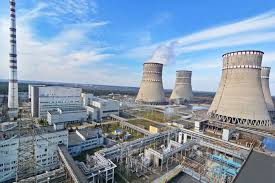The IAEA will continue to monitor the safety of Ukrainian NPPs
22 November 2024 12:49
Energy Minister Herman Halushchenko discussed the need to continue IAEA missions at all substations that are crucial for the safe operation of Ukrainian nuclear power plants in Vienna with Director General of the International Atomic Energy Agency (IAEA) Rafael Grossi. This was reported by the Ministry of Energy, "Komersant Ukrainian" reports.
The Minister told the IAEA Director General about the consequences of the recent large-scale Russian attack, which targeted substations that are critical for the power output of nuclear units.

“Despite the previous IAEA missions and the fact that experts have documented the importance of substations as a guarantee of nuclear and radiation safety of nuclear power plants in Ukraine, the attacks are only intensifying. We must continue monitoring to document the consequences of this attack and to avoid such attacks in the future,” said Mr. Galushchenko.
For his part, the IAEA Director General assured that the Agency is ready to organize relevant missions in the near future.
Monitoring of power substations important for NPPs
on September 12, 2024, the IAEA monitoring mission visited one of the electrical substations in Ukraine that has a significant impact on the safety and stability of NPPs and was damaged as a result of massive missile attacks by the Russian Federation on civilian infrastructure.
This visit marked the beginning of the practical implementation of the agreements reached during the meeting between President of Ukraine Volodymyr Zelenskyy and IAEA Director General Rafael Mariano Grossi on September 3, 2024 in Kyiv on the need to expand the IAEA’s attention not only to the safety of nuclear power plants, where the Agency’s experts have been on a permanent basis since early 2023, but also to the state of safety-critical nuclear installations of electrical substations.

Inadmissibility of actions that threaten NPP operation
The Protocols to the Geneva Conventions stipulate that military attacks on NPPs and dams are inadmissible and violate humanitarian law, causing additional suffering to the civilian population. The Geneva Conventions were signed and ratified by the USSR, whose successor the Russian Federation considers itself to be. However, the aggressor country continues to cynically ignore both international law and resolutions of the UN General Assembly, the Board of Governors and the IAEA General Conference, while remaining a full member of the Agency, whose motto since its inception has been “Atoms for Peace.”









